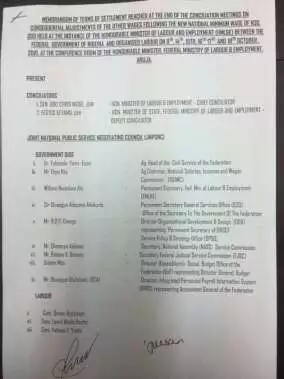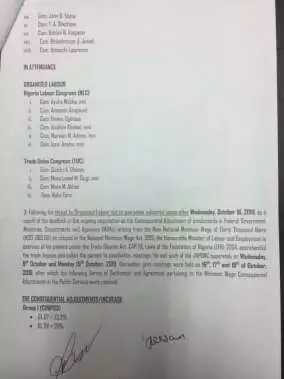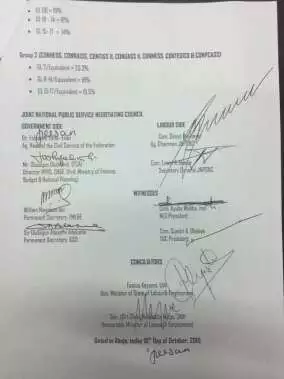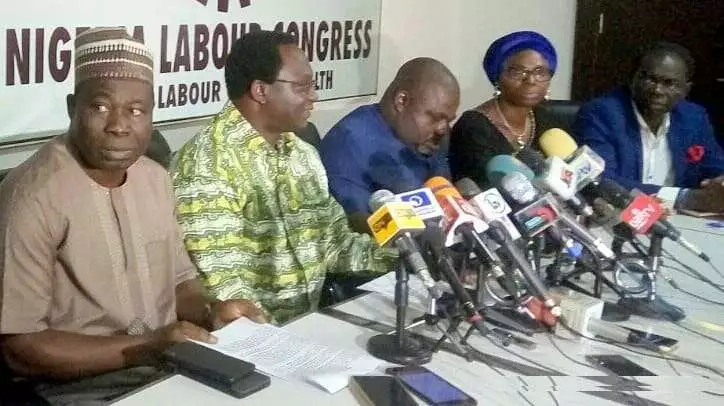In the wee hours Friday, Nigeria Labour Congress and the Federal government finally came to an agreement after several days of wrangling over the minimum wage. They have been pitted against each other over a template on consequential adjustments for the N30,000 minimum wage.
The new template suggests that workers on grade level 07 will have their wage increased by 23.2%, grade Level 08 at 20%, Grade level 09 at 19%, Grade level 10-14 at 16% and from 15 to 17 at14%.
Festus Keyamo, the Minister of state for Labour, in a tweet, said they have agreed with the Unions.
“At about 3am this morning, we signed this Terms of Settlement b/w Govt & Labour which reveals different percentages of adjustments in other wages after the minimum wage adjustment. Those of the law-enforcement agencies have also been done, but are not captured in this Memorandum”, he tweeted.
Before the elections, the government agreed on N30,000 minimum wage, but after the elections, the government developed cold feet, necessitating the current negotiations.


Labour had threatened the nation with a strike action, which was test run in Asaba, Delta state, where workers were forced into strike by the Unions. Government allegedly had tried a divide and rule tactic by allegedly backing a splinter group of the unions to break their ranks, but that obviously did not work.
There have been reservations on the willingness of the present crop of NLC leaders to effectively fight for the welfare of the masses. But the result of the negotiations appears to give a lie to such reservations.
The minimum wage has come a long way. During the presidency of Goodluck Jonathan, the minimum wage was 18,000, which translated to about $90 at the then prevailing exchange rate of N200 per dollar. Currently, the minimum wage is 30,000 which translates to $83 at N360 per dollars-seven dollars less than Jonathan’s minimum wage.
Discover more from The Source
Subscribe to get the latest posts sent to your email.








